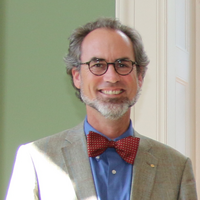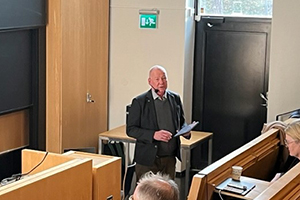KTH Quantum Technology Hub unlocks the potential for collaboration in the quantum field
Quantum technology is a field that promises to revolutionize the way we process information, develop powerful computing systems and secure communication channels. The Quantum Technology Hub (QTH) at KTH is an initiative to promote and coordinate education, research and innovation in this exciting field.

The Quantum Technology Hub aims to be a crossroad for quantum technology research, education, and industry collaboration in the greater Stockholm area. While based at KTH, QTH's ambitions extend to other academic institutions such as Stockholm University (SU) and Karolinska Institutet (KI). In addition, QTH seeks to establish partnerships with companies that share a strong interest and ambition in quantum technology.
"QTH's primary goals are clear and ambitious. The hub aims to facilitate communication and collaboration across different disciplines at the interface between academia and industry. By creating a vibrant and inclusive community, QTH will serve as a meeting point and forum for students, faculty and researchers passionate about quantum technology", says professor David Haviland, director of QTH.
QTH kick-off: a quantum leap into the future of quantum technology

QTH recently held its kick-off event, which attracted 120 participants from a wide range of backgrounds and academic disciplines. In his welcome address, KTH’s president Anders Söderholm emphasized the importance of quantum technology in shaping the future. The event announced the Göran Lindblad Prize for best Masters Thesis. Göran Lindblad was a KTH faculty member who is internationally recognized for his very early and important contribution to the field. Professor Per Delsing described the Wallenberg Center for Quantum Technology and the progress with the Swedish quantum computer. The event closed with a poster session and mingle, showcasing research of graduate students, where ideas and insights were shared.
Forging partnerships and shaping the future of quantum technology
Understanding that the future of quantum technology depends on cutting-edge research, QTH aims to create an environment that fosters innovation and collaboration. The hub does not directly fund or manage research projects but recognizes the importance of project communication and collaboration.
"This communication and collaboration will facilitate applications for larger grants. For example, Prof. Katia Gallo, the former director of QTH, recently organized several groups and they obtained a substantial grant to establish a quantum infrastructure within the EURO QCI programme", explains Haviland.
Within QTH, academic collaboration is essential, there Stockholm University, with numerous groups involved in quantum technology research, is a promising partner on the horizon. "A significant number of quantum technology projects are already underway at KTH and SU, supported by WQCQT and various European Union agencies such as EIC, ERC or Marie Curie, as well as Swedish funding agencies such as the Swedish Research Council and Vinnova."
"Innovation is another area that QTH wants to promote", says Haviland and continues: "We have already secured the support of one small company and several others have expressed interest in joining this innovative initiative. The growing interest from established industry shows the immense potential of quantum technology and the importance of QTH as a bridge between academia and industry".
Text: Elina Charatsidou
